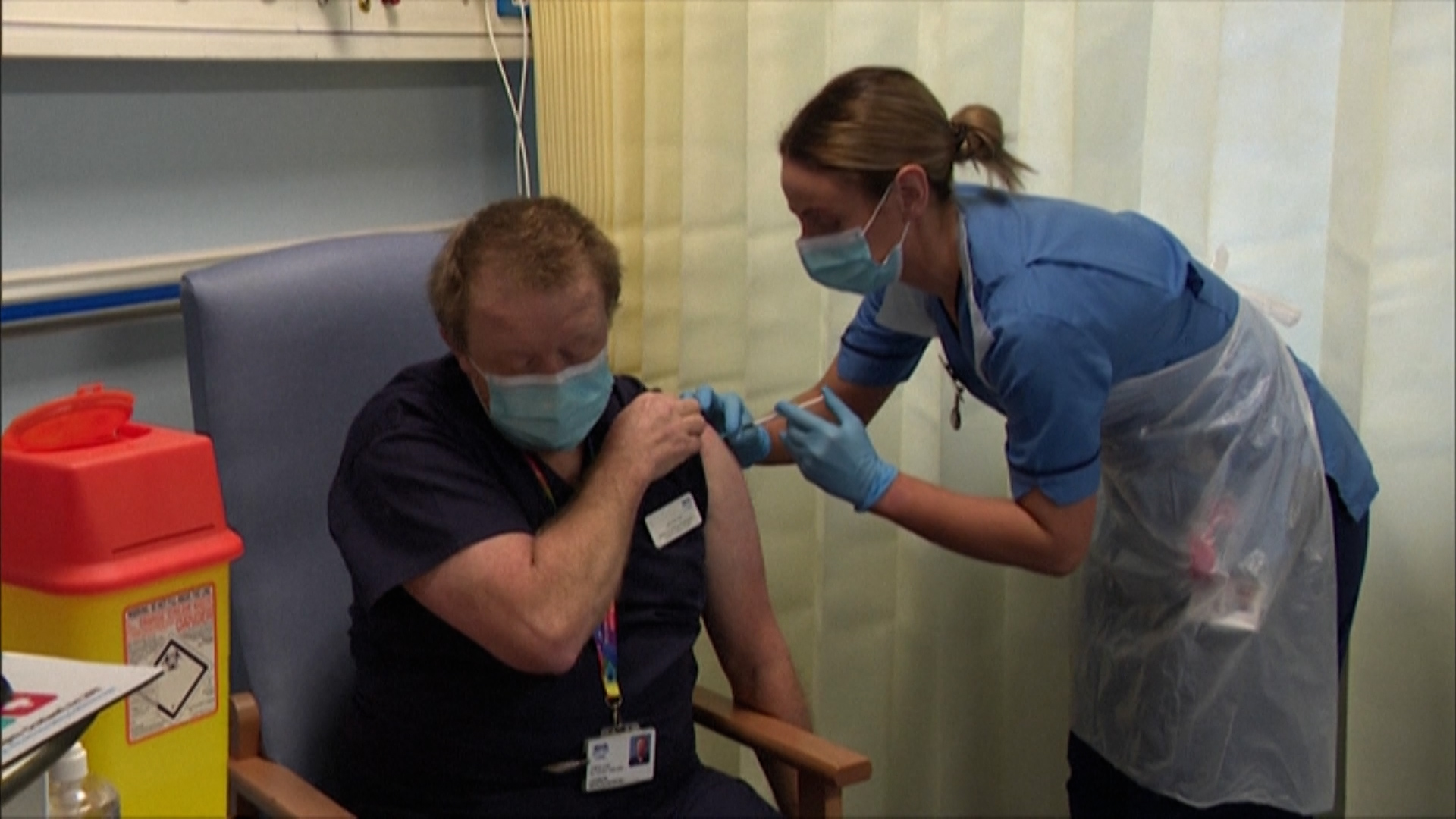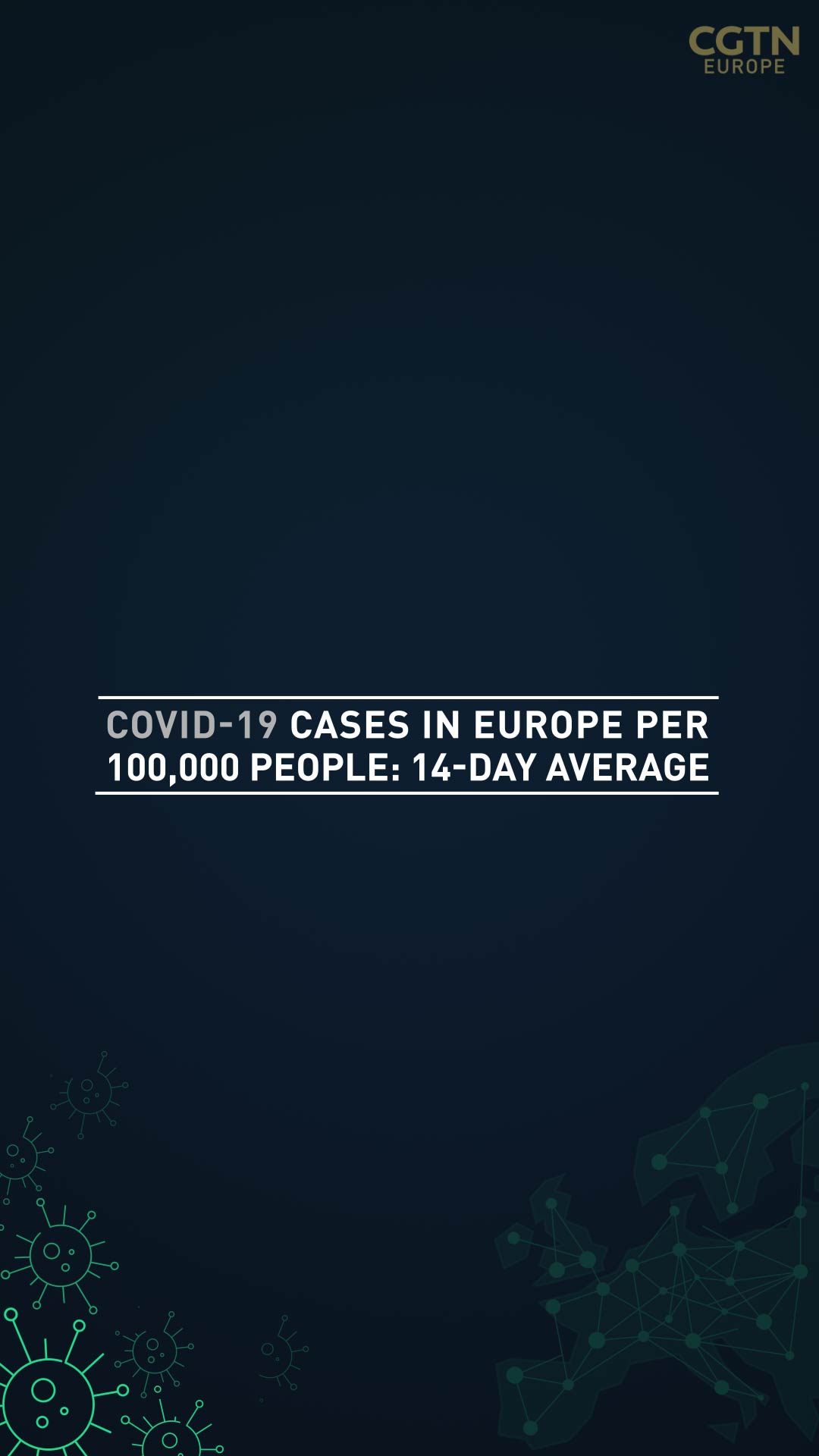TOP HEADLINES
- UK regulators have urged people who have a history of 'significant' allergic reactions not to receive the Pfizer/BioNTech vaccine, after two people who had the jab suffered a reaction.
- Germany's Chancellor Angela Merkel has agreed with recommendations to close shops across the country until January 10, saying a vaccine alone would not majorly slow the spread of infections in the first quarter.
- Ukraine is to tighten its restrictions from January 8 to January 24, which include the closure of schools, cafes, restaurants, gyms and a ban on mass gatherings.
- People traveling to Norway will no longer have to serve their 10-day quarantine period in a quarantine hotel. Instead they can carry out the isolation period in a place of their choosing if they can document that they will respect quarantine conditions.
- Italy has reported 499 new deaths in the past 24 hours, down from 634 the day before, to bring the cumulative toll to 61,739.
- The head of Russia's consumer safety watchdog has said that anyone getting vaccinated with the Sputnik V vaccine should stop drinking alcohol at least two weeks before getting the first of two injections and then for a further 42 days.
- Europe's medicines regulator, the European Medicines Agency, which is responsible for assessing and approving potential COVID-19 vaccines for the EU, said it was the target of a cyberattack on Wednesday and is investigating the incident with help from law enforcement.
- Switzerland plans to ban all public events apart from church services and legislative meetings from December 12 to slow the spread of the virus. The government plans to order restaurants, shops and markets to close at 7 p.m. until January 20, while private gatherings will also be limited.
- Iceland's public swimming pools and cinemas will be allowed to reopen at a reduced capacity, after a fall in new infections. Shops may also be allowed to welcome up to 100 people, depending on the size of the shop, according to the country's Ministry of Health.
- Moldova's Prime Minister Ion Chicu has tested positive for the virus, his adviser Boris Harea said. "The Prime Minister will run the government remotely," he added.
- The UK's chief scientific adviser, Patrick Vallance, has warned Britons they may still need to wear face masks next winter despite the country's vaccination program getting under way.
- Sweden's government has proposed new temporary legislation to expand its powers to fight the pandemic, giving it greater leeway to implement and enforce lockdown measures.

ACROSS EUROPE
Ross Cullen in Paris
President Emmanuel Macron has said that December 15 would be the day when the country would come out of the second nationwide lockdown.
He had hoped to see daily infection numbers around or under 5,000 by December 15 but it looks increasingly likely that this target will not be met by the deadline.
The government wants to bring in a curfew to replace lockdown; the curfew would last from 9 p.m. to 7 a.m. and you would need to fill in a document if you leave your house, explaining why you are outside between those hours.
Linda Kennedy in Budapest
Hungary has been invited to take part in a clinical trial for the Russian vaccine, the government has announced.
A Hungarian delegation visited Russia and the invitation to take part, the government said, would mean between 3,000 and 5,000 Hungarians being vaccinated.
A row has broken out after Hungarian news websites reported the country's national chief physician said there would be no choice of vaccines for Hungarians. The government then published a contradiction to this on its official website.
It comes after the country's new vaccine registration site went live. The national chief physician said the purpose of the vaccine registration site is to determine how many people would like to be vaccinated.
02:02

Rahul Pathak in Madrid
Spain has recorded its lowest number of weekend coronavirus cases since August, after a further 17,591 new cases were reported over the weekend.
That's the lowest since August 14, taking the number of confirmed coronavirus cases to 1,702,328.
The health ministry said the figures show the central government's decision to reimpose a state of emergency on October 26 had proved to be the right one as it gave the regions the power to arrest the spread of the second wave.
Stefan de Vries in Amsterdam
On Tuesday evening, the Dutch government gave a press conference in The Hague on the current situation.
Prime Minister Mark Rutte was not able to announce any further relaxations of the current COVID-19 measures. "We really wanted to have seen something different," he said.
In the coming weeks, the cabinet could still opt to close shops or schools, but will initially rely on citizens behaving responsibly.
There were 43,103 positive tests in the past week. That is over 9,000 more than in the previous week (33,949). The current spike could be the consequence of the crowds in the city centers on Black Friday (November 27).
00:20

FROM OUR GLOBAL COLLEAGUES
CGTN Europe special: The Alps - Timeless and changing
CGTN China: China's E-bike output surges 33.4 percent in first 10 months
CGTN America: California begins new lockdown as COVID-19 cases surge
CGTN Africa: Kenya reports 521 new COVID-19 cases, total caseload reaches 89,100
Sign up here to get the COVID-19 Europe bulletin sent directly to your inbox.
CGTN Europe has been providing in-depth coverage of the novel coronavirus story as it has unfolded. Here you can read the essential information about the crisis.

